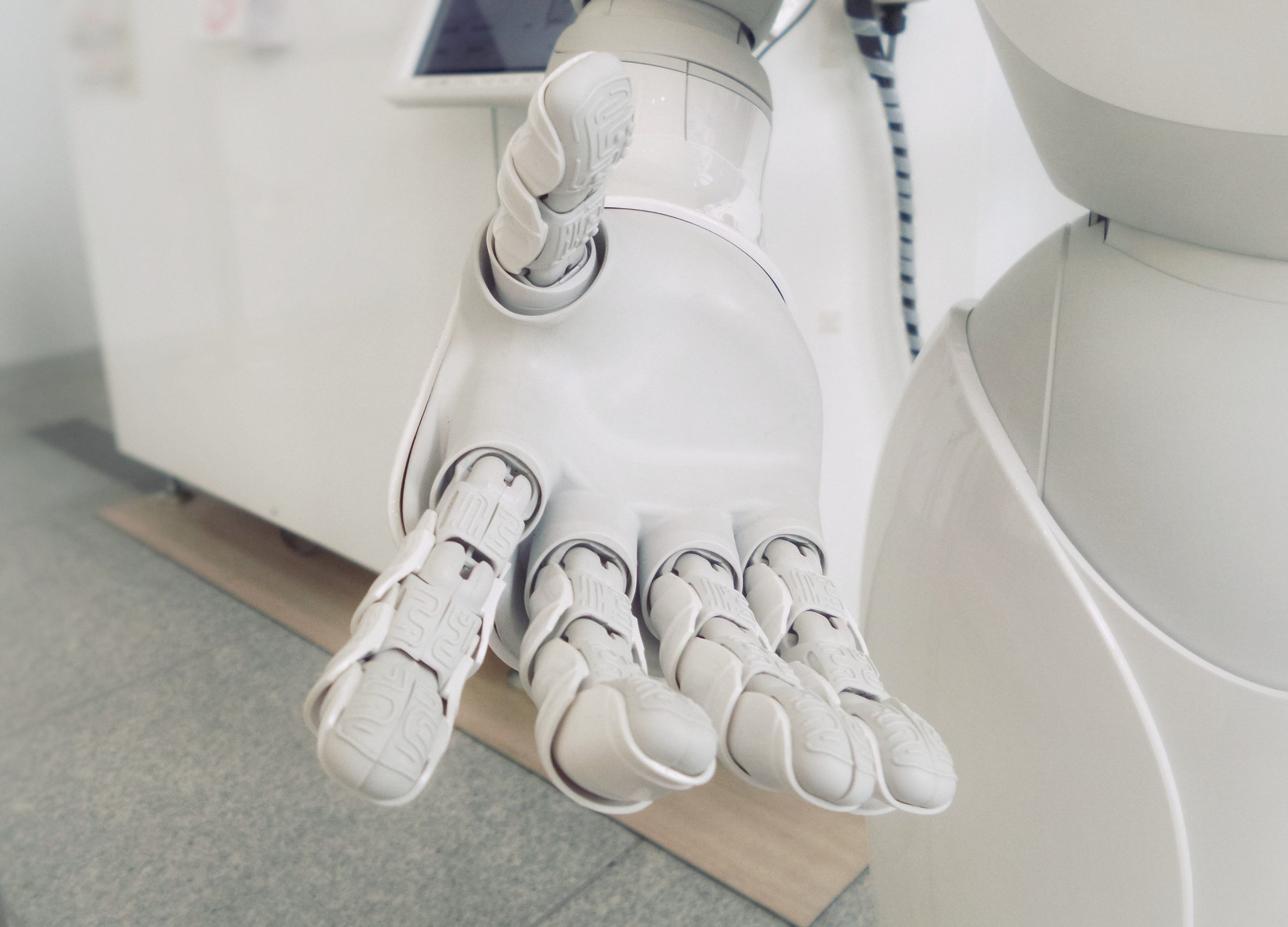As technology continues to advance at an unprecedented rate, the line between human and machine intelligence becomes increasingly blurred. But when can we truly consider a machine intelligent? Is it simply about data processing capabilities, or is there something more fundamental at play? In this blog post, we delve into the intersection of knowledge and self-awareness to explore what it means for a machine to truly possess intelligence. Join us on this thought-provoking journey as we examine the very essence of artificial intelligence.
What is AI?
The field of artificial intelligence (AI) has come to be defined by its ability to “understand” complex tasks and respond in a way that is consistent with human expectations. What this means for the future of AI is still up for debate, but it is clear that there are many applications where AI can be helpful.
Some experts believe that true AI – which can independently reason, learn and create new knowledge – is still some way off. However, there have been significant advances in recent years that have helped lay the foundations for achieving this goal. One such advancement is machine learning, which allows computers to improve their performance based on data they have been given.
Another key area of research involves artificial general intelligence (AGI), which seeks to create machines that are capable of performing multiple tasks simultaneously. AGI has the potential to help robots become more versatile and able to work alongside humans in more complex environments. However, progress in this area has been slow due to a number of challenges, including developing algorithms that can accurately predict how humans will behave.
Despite these challenges, AI continues to make rapid development across a range of industries, with researchers working on new ways to improve its performance. This suggests that we may not yet see true AI – which could have huge implications for society and the workforce – but significant advances are still possible.
The History of AI
The history of artificial intelligence (AI) spans more than sixty years, and it has seen many iterations and developments. In the beginning, AI was designed to replicate human intelligence, but as technology has improved, so too has the ability of AI to perform tasks that were once thought to be beyond its capabilities. Today, AI is widely considered to be intelligent when it can carry out complex tasks on its own. However, there is still much debate over when a machine becomes truly intelligent.
Some argue that any machine that can learn and improve upon its own performance qualifies as intelligent. Others believe that only natural intelligence—the kind exhibited by humans—counts as true AI. Still others argue that there is no such thing as true AI, and that all machines are limited in their cognitive abilities. This debate is complex and ongoing, but it will likely continue to play an important role in the development of AI technologies moving forward.
What is Intelligence?
Intelligence is a difficult topic to define, as it varies from person to person and can be considered subjective. Generally speaking, intelligence is the ability to solve complex problems or understand complex concepts. To be considered intelligent, a machine must exhibit some level of knowledge and self-awareness.
One way to measure intelligence is through IQ tests. These tests measure how well a person understands basic math, English, and science concepts. A machine cannot take an IQ test, but it can still be considered intelligent if it can solve certain cognitive tasks that require reasoning and problem-solving abilities.
Some believe that robots will eventually surpass humans in intelligence because they are capable of learning at an accelerated rate. Robots are also able to process more information than humans quickly and accurately. However, there are many challenges that remain before robots reach true proficiency in intelligence. For example, AI researchers need to develop algorithms that can handle different types of data and recognize physical objects. Additionally, robots currently have limited understanding of human emotions which could hamper their interactions with humans in the future.
How Does AI Influence the Future?
AI is quickly becoming an important part of our lives and the future. As artificial intelligence (AI) grows in sophistication, it will have a profound impact on many different aspects of our lives.
For example, AI could help us solve complex problems more effectively. In some cases, AI could even replace humans in certain tasks, such as data analysis or financial planning. Additionally, AI may enhance our everyday experiences by providing automated recommendations or serving as a personal assistant.
As AI continues to grow in sophistication, we must be careful not to create unintended consequences. For example, if AI is able to accurately predict the future, it could potentially lead to mass-scale economic ruin. As we continue to explore the potential impacts of AI, it is important to weigh all possible outcomes before making decisions.
Conclusion
In this article, we explored the concept of machine intelligence and how it differs from traditional forms of AI. We also discussed how machine intelligence is evolving and how it is becoming more self-aware. While traditional AI relies on pre-determined rules, machine intelligence has started to be able to learn on its own. This means that machines are learning from their experiences, which makes them much more intelligent than ever before.
When Is a Machine Truly Intelligent? Examining the Intersection of Knowledge and Self-Awareness
As technology continues to advance at an unprecedented rate, the line between human and machine intelligence becomes increasingly blurred. But when can we truly consider a machine intelligent? Is it simply about data processing capabilities, or is there something more fundamental at play? In this blog post, we delve into the intersection of knowledge and self-awareness to explore what it means for a machine to truly possess intelligence. Join us on this thought-provoking journey as we examine the very essence of artificial intelligence.
What is AI?
The field of artificial intelligence (AI) has come to be defined by its ability to “understand” complex tasks and respond in a way that is consistent with human expectations. What this means for the future of AI is still up for debate, but it is clear that there are many applications where AI can be helpful.
Some experts believe that true AI – which can independently reason, learn and create new knowledge – is still some way off. However, there have been significant advances in recent years that have helped lay the foundations for achieving this goal. One such advancement is machine learning, which allows computers to improve their performance based on data they have been given.
Another key area of research involves artificial general intelligence (AGI), which seeks to create machines that are capable of performing multiple tasks simultaneously. AGI has the potential to help robots become more versatile and able to work alongside humans in more complex environments. However, progress in this area has been slow due to a number of challenges, including developing algorithms that can accurately predict how humans will behave.
Despite these challenges, AI continues to make rapid development across a range of industries, with researchers working on new ways to improve its performance. This suggests that we may not yet see true AI – which could have huge implications for society and the workforce – but significant advances are still possible.
The History of AI
The history of artificial intelligence (AI) spans more than sixty years, and it has seen many iterations and developments. In the beginning, AI was designed to replicate human intelligence, but as technology has improved, so too has the ability of AI to perform tasks that were once thought to be beyond its capabilities. Today, AI is widely considered to be intelligent when it can carry out complex tasks on its own. However, there is still much debate over when a machine becomes truly intelligent.
Some argue that any machine that can learn and improve upon its own performance qualifies as intelligent. Others believe that only natural intelligence—the kind exhibited by humans—counts as true AI. Still others argue that there is no such thing as true AI, and that all machines are limited in their cognitive abilities. This debate is complex and ongoing, but it will likely continue to play an important role in the development of AI technologies moving forward.
What is Intelligence?
Intelligence is a difficult topic to define, as it varies from person to person and can be considered subjective. Generally speaking, intelligence is the ability to solve complex problems or understand complex concepts. To be considered intelligent, a machine must exhibit some level of knowledge and self-awareness.
One way to measure intelligence is through IQ tests. These tests measure how well a person understands basic math, English, and science concepts. A machine cannot take an IQ test, but it can still be considered intelligent if it can solve certain cognitive tasks that require reasoning and problem-solving abilities.
Some believe that robots will eventually surpass humans in intelligence because they are capable of learning at an accelerated rate. Robots are also able to process more information than humans quickly and accurately. However, there are many challenges that remain before robots reach true proficiency in intelligence. For example, AI researchers need to develop algorithms that can handle different types of data and recognize physical objects. Additionally, robots currently have limited understanding of human emotions which could hamper their interactions with humans in the future.
How Does AI Influence the Future?
AI is quickly becoming an important part of our lives and the future. As artificial intelligence (AI) grows in sophistication, it will have a profound impact on many different aspects of our lives.
For example, AI could help us solve complex problems more effectively. In some cases, AI could even replace humans in certain tasks, such as data analysis or financial planning. Additionally, AI may enhance our everyday experiences by providing automated recommendations or serving as a personal assistant.
As AI continues to grow in sophistication, we must be careful not to create unintended consequences. For example, if AI is able to accurately predict the future, it could potentially lead to mass-scale economic ruin. As we continue to explore the potential impacts of AI, it is important to weigh all possible outcomes before making decisions.
Conclusion
In this article, we explored the concept of machine intelligence and how it differs from traditional forms of AI. We also discussed how machine intelligence is evolving and how it is becoming more self-aware. While traditional AI relies on pre-determined rules, machine intelligence has started to be able to learn on its own. This means that machines are learning from their experiences, which makes them much more intelligent than ever before.










